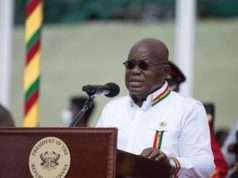Ghanaian traders importing food items and clothes from neighbouring Burkina Faso, Togo and Niger, have bemoaned the impact of exorbitant illegal monies taken from them by personnel of the Ghana Immigration Service (GIS) and the Ghana Police Service (GPS) on the Tamale-Paga highway.
Dozens of police and immigration checkpoints are dotted on the ECOWAS highway for immigration and security purposes.
However, the personnel manning these checkpoints are alleged to be taking some unapproved cash from the traders even when they provide the necessary documentation to meet financial and security requirements on the road.
Some of the traders have complained bitterly how this is affecting their business capitals and have called for an urgent intervention of government to curb this menace allegedly perpetuated by the security personnel.
Mr. Sulemana Alhassan, a member of Tamale Tomatoes Sellers’ Association said anytime they are traveling to Ouagadougou, an amount of GH¢5,000 is always contributed by the traders purposely to sort out police and immigration officers both in Ghana and Burkina Faso.
“When we get to Paga, they take at least GH¢200 from us in the name of sorting out the officers there before they will allow us passage. And when we get to the French border, they also take 90,000CFA which is equivalent to about GH¢1,900 before they will give us permit,” he alleged.
Mr. Sulemana said upon returning to the Ghanaian border, they also are charged an amount of GH¢600 by individuals believed to be agents of the immigration after which they “only issue a local council paper to us.”
“They have another entry barrier where the immigration officers will take the council paper and demand additional GH¢20; decrying that even with the council paper, they will insist on taking that 20cedis from us,” he stressed.
He emphasized the situation is the same across all the police and immigration checkpoints from Paga to Tamale, stating “they will delay us because they know we’re transporting perishables and we cannot refuse to offer them the 20 cedis.”
Mr. Suleman added that “Even when sometimes you genuinely ran out of cash and plead with them to let you go and next time when you’re passing, you will sort them out; they won’t allow you.”
Another trader who imports clothes, Hajia Memuna Abdulai, also gave an account of her frustration in the hands of the immigration and police officers whenever she is traveling to buy her goods.
“You’ll even pay for anything you’re holding in your hands, whether it is food you’ve bought to eat or anything you’re carrying in your handbag. They charge us GH¢20 and nothing less before you’re allowed to cross the border.”
She lamented the businesses of some of her colleagues are now folding up because they no longer have substantial capital to import goods for sale.
Impact on inflation
Hajia Memuna complained about how the desire for bribe by the uniform personnel also contributes to the hikes in prices of goods and services, especially food commodities, which is a reflection of the high inflation in the country.
Responding to the worrying phenomenon, the Northern Regional Secretary of Ghana Union of Traders’ Association (GUTA), Mr. Thomas Addy who doubles as a Deputy National Public Relations Officer (PRO) said the situation still persists although leadership of the union has held several stakeholder meetings with the hierarchy of the security agencies.
Ghana Card
Mr. Addy has therefore called on the government to intervene and ensure that the National Identity Card (Ghana Card) is recognized outside the shores of the jurisdiction.
According to him, the card which is supposed to serve as a traveling document “to us business men and women”, in other ECOWAS member countries is not regarded in the neighbouring West African states.
“When we appear before the neighbouring barriers, they don’t regard it at all. What they are interested is the money they will take from us but we’re saying this is an ECOWAS card and all ECOWAS countries must accept it. Incidentally, they rather recognize a paper they issue to their citizens called ‘Lesi Passea’, it is just an ordinary paper but they value it more than our beautiful Ghana card which I think is unfortunate,” he stated.
Mr. Addy reiterated that “our leaders have to work on this so that the identity card serves its intended purpose as a traveling document in the sub-region.”









































